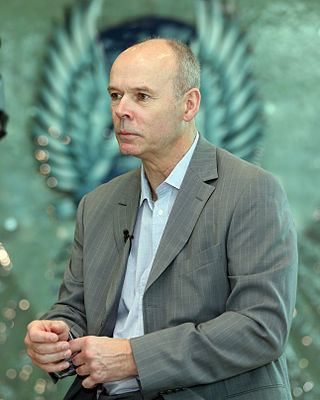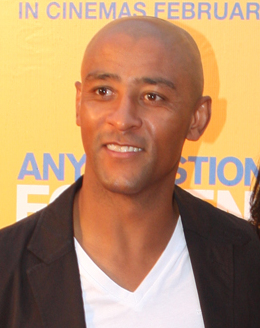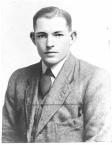Related Research Articles

Leicester Tigers are a professional rugby union club based in Leicester, England. They play in Premiership Rugby, England's top division of rugby.

Martin Osborne Johnson CBE is an English retired rugby union player who represented and captained England and Leicester in a career spanning 16 seasons. He captained England to victory in the 2003 Rugby World Cup, and is regarded as one of the greatest locks ever to have played, and one of England's greatest ever players.

Sir Clive Ronald Woodward is an English former rugby union player and coach. He was coach of the England team from 1997 to 2004, managing them to victory in the 2003 Rugby World Cup. He also coached the 2005 British & Irish Lions tour to New Zealand, losing the test series 3–0. He is currently a pundit for ITV Sport, working on their coverage of the Six Nations and Rugby World Cup.

The Australia men's national rugby union team, nicknamed the Wallabies, is the representative men's national team in the sport of rugby union for the nation of Australia. The team first played at Sydney in 1899, winning their first test match against the touring British Isles team.

The ACT Brumbies is an Australian professional rugby union team based in Canberra, Australian Capital Territory (ACT), The team competes in Super Rugby and named for the feral horses which inhabit the capital's hinterland. The team represents the ACT, as well as the Far South Coast and Southern Inland regions of New South Wales (NSW).

George Musarurwa Gregan AM is a retired Australian rugby union player, and is currently Australia's second most capped international player.

Jeremy Clayton Guscott is an English former rugby union player who played for Bath, England and the British Lions. Usually an outside centre, he also appeared for England on the wing.

The New South Wales Waratahs, referred to as the Waratahs, are an Australian professional rugby union team representing the majority of New South Wales in the Super Rugby competition. The Riverina and other southern parts of the state, are represented by the Brumbies, who are based in Canberra, Australian Capital Territory (ACT).

Felipe Contepomi is an Argentine professional rugby coach who is currently the head coach of the Argentine national side.
Chris Whitaker is an Australian professional rugby union coach and former international player. As of 2018 he is head coach of the Sydney Rays in Australia's National Rugby Championship, and the interim head coach of Super Rugby side the New South Wales Waratahs,
Winston Ulysses Stanley is a Canadian rugby union player. He played wing for University of British Columbia, James Bay Athletic Association and Vancouver Kats in Canada before later moving to English club Leicester Tigers.

Randwick District Rugby Union Football Club, also known as the Galloping Greens, is an Australian rugby union club in the Eastern Suburbs of Sydney which competes in the Sydney premier grade rugby union competition. The club was formed in 1882 and since then has won 32 first grade premierships and six Australian club championships. It is one of the traditional powerhouses of the Shute Shield competition, winning 14 titles from 1978 to 1996. Randwick's colours are myrtle green and the club's home ground is Coogee Oval. In the 1980s the club produced many Wallabies, including the Ella brothers. Its history has seen many of Australia's best players represent the club, including the likes of George Gregan, Rocky Elsom and David Campese. In all, 93 Randwick players have pulled on a Wallaby jersey, and nine have had the honour of captaining their country.
Roderick Ian Macqueen, AM is an Australian former rugby union coach. He coached Australia at the Rugby World Cup, and the Waratahs, Brumbies and Rebels in the Super Rugby competition.
Kenneth William Catchpole was an Australian rugby union footballer. A state and national representative half-back, he played twenty-seven matches for Australia, thirteen as captain. Catchpole rose through the ranks at the Randwick club as a young man, before making his debut for New South Wales at only 19 years of age, then captaining Australia at age 21. He is considered one of Australia's greatest rugby scrumhalves.

Rocky Elsom is an Australian former rugby union player. He played the positions of flanker and number eight. He was selected for 75 caps for Australia and scored 75 points. He is the most capped Australian blindside flanker. Elsom was the 76th Australian test captain, having replaced Stirling Mortlock in 2009 for two years. He played for the Wallabies from 2005 until 2011. Elsom played professionally for New South Wales, Brumbies and Leinster.
Dean Richards is a rugby union coach and former player for Leicester Tigers, England and British & Irish Lions. He was most recently the Director of Rugby at Newcastle Falcons, a position he held for ten years between 2012 and 2022.

Tom Lawton Snr was an Australian rugby union player, a state and national representative five-eighth who made 44 appearances for the Wallabies, played in 14 Test matches and captained the national side on ten occasions.
Rugby union was first introduced into Lebanon both by the mandated French forces, and subsequently by the Lebanese returning from the diaspora. Introduced into other parts of the Middle East, by the British military in the mid 20th Century, rugby has begun to develop across the Arabian peninsula.
References
- ↑ "Archived copy" (PDF). Archived from the original (PDF) on 2 January 2020. Retrieved 4 June 2012.
{{cite web}}: CS1 maint: archived copy as title (link) - ↑ "George Evans". Archived from the original on 26 March 2012. Retrieved 18 June 2012.
- ↑ "Five Famous Player-Coach Fallouts". Rugby World Today. Retrieved 17 June 2020.
- ↑ "Rugby Union: Bristol promoted in top drawer fashion – Independent, The (London) – Find Articles at BNET.com".[ dead link ]
- ↑ "Rugby Union: Waratahs decide on Dwyer in attempt to stop slide – Independent, The (London) – Find Articles at BNET.com".[ dead link ]
- ↑ "Rugby Union: Dwyer's fight for the future – Independent, The (London) – Find Articles at BNET.com".[ dead link ]
- ↑ "RWC legends inducted into IRB Hall of Fame" (Press release). International Rugby Board. 26 October 2011. Archived from the original on 27 October 2011. Retrieved 26 October 2011.
- ↑ "Bob Dwyer". Sport Australia Hall of Fame. Retrieved 25 September 2020.
- ↑ "Archived copy" (PDF). Archived from the original (PDF) on 2 January 2020. Retrieved 4 June 2012.
{{cite web}}: CS1 maint: archived copy as title (link) - ↑ Guinness, Rupert (3 January 2013). "Dwyer recovering after heart attack". smh.com.au. Retrieved 3 January 2013.